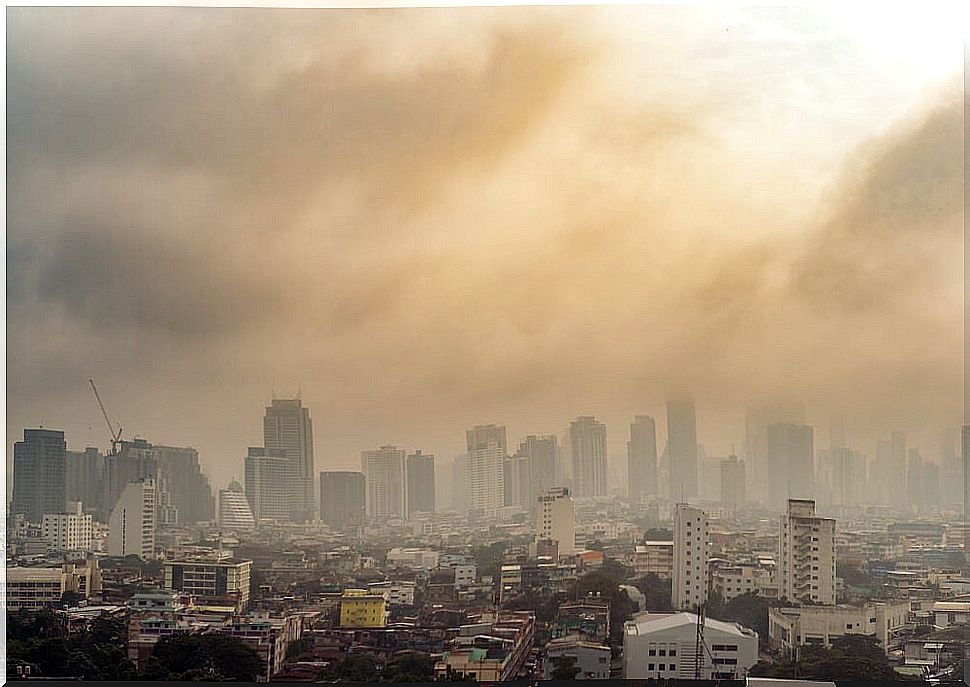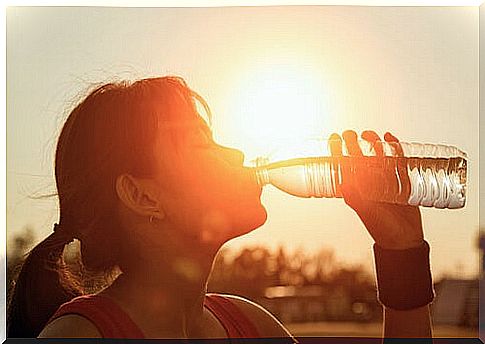How Does Climate Change Affect Health?
Climate change is no longer a problem for future generations: it is here and we have been able to observe its effects with our own eyes. More intense storms and heat waves, melting glaciers and changes in ecosystems are some of them.
Unfortunately, climate change not only alters the well-being of ecosystems and the wild species that inhabit them, but also has various effects on human health. Here we will introduce you to a few, listed by the Centers for Disease Control and Prevention or CDC (Centers for Disease Control and Prevention).
Pollution and human health
Climate change results, in part, in an increase in ozone at ground level. This is a secondary pollutant, as it is formed from two other gases. It is one of the main components of smog or toxic fog, known to many.
This phenomenon, in the long term, affects health in several ways:
- A greater number of hospital admissions of patients with asthma.
- It generates a decrease in lung capacity.
- It can even be the cause of premature death.
Some of the factors that promote ozone formation at ground level are heat, high concentration of chemical aerosols, and methane emissions. Some studies estimate that, if no action is taken regarding pollution, there will be 1,000 to 4,300 premature deaths from this cause before the year 2050.

Increase in vector diseases
Animal vectors are those living beings capable of transmitting a disease to humans when they come into contact with them. Mosquitoes, flies, ticks, and other insects quickly come to mind.
Due to climate change and the irreversible expansion of the human being in natural lands, variations in the normal biological dynamics of these vectors occur. This can have a number of effects:
- Pathogens can conquer new niches through a modified environment more conducive to them, increasing their geographic range.
- It can increase the incidence in certain new populations, since they are less prepared, do not have as effective vaccines or have not developed immunity.
- A greater infestation could translate into a better evolutionary and adaptive capacity of the pathogen.
Some of these diseases that are expanding due to globalization and climate change will be familiar to all of us: Lyme disease , dengue or tularemia are clear examples.
The negative effect of extreme temperatures
According to OXFAM Intermón, extreme temperatures are one of the clearest effects of climate change, along with many others.
The negative effects of heat waves on the population are serious, especially in risk groups. Some regions of the United States such as Chicago, Philadelphia or Cincinnati have experienced dramatic increases in death rates during the hottest times.

Other effects of climate change on human health
Other negative effects of climate change on human health are the following:
- The increase in temperatures produced by climate change can produce an imbalance in the flowering times of the different plant species.
- The very increase in CO2, for various reasons, can lead to an intensification of pollen production. This, combined with the previous point, can cause an increase in allergies in the general population.
- Variations in temperatures, both of the water and of the air, as well as episodes of floods or extreme rains, can promote the contamination of drinking water, especially in developing countries. This translates into an increase in bacterial diseases and severe diarrhea.
- The increase in forest fires due to increases in temperature is also a serious problem, not only for ecosystems, but for human health, because of their danger and because they generate a high concentration of harmful particles in the air.
Climate change: a bad prognosis of possible solution
As we have seen, climate change not only affects ecosystems and the animals that populate them, but also its effects directly affect human beings.
Of course: we still have time to act. With a series of simple steps and concessions we can make the world a more livable place for ourselves and future generations.









